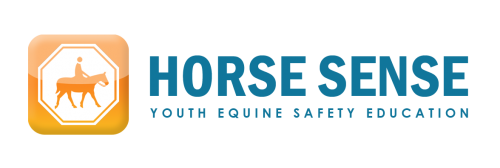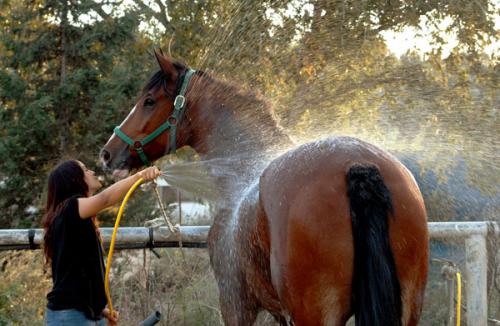Equine farm safety training: Improving safety for youth working on horse farms
“Horse Sense" youth equine farm safety course now available – expand your knowledge of horse safety practices by taking this free online course.
 Have you ever worked on a horse farm or equine facility? Are you responsible for supervising youth or others working with horses? Maybe you've dealt with a bad-mannered horse, or possibly know someone who has been injured while working with horses. Now you have an opportunity to learn how to be safe while working with horses at any equine facility.
Have you ever worked on a horse farm or equine facility? Are you responsible for supervising youth or others working with horses? Maybe you've dealt with a bad-mannered horse, or possibly know someone who has been injured while working with horses. Now you have an opportunity to learn how to be safe while working with horses at any equine facility.
Equine experts from Michigan State University's My Horse University and eXtension HorseQuest are proud to offer a new course for youth called "Horse Sense" – Equine Farm Safety Training. This course is designed for youth who currently work with horses or desire to be involved with horses in the future, but will benefit anyone working with or supervising those working on farms.
The training program contains 11 short courses which include videos, links and activities, while providing important horse safety information. Students will receive a certificate for each successfully completed short course. Many 4-H clubs are using this course as a club activity.

The online course Horse Sense will educate youth on how to work safely around horses.
These courses are self-paced, with many videos, activities and interactive learning opportunities. The courses are free of charge and open to anyone interested in working with horses.
Equine Safety Courses Offered
Build your equine resume by completing any or all of the following courses:
- Horse Behavior
- Horse Handling
- Horse Manners
- Grooming
- Horse Keeping - Daily Care and Management of Horses
- Training & Exercising
- Machine & Chemical Safety
- Traveling with Horses
- Biosecurity on Horse Farms
- Horse Health
- Employer/Employee Relations
To register and to get started, visit http://www.myhorseuniversity.com/youth/. The Horse Sense project is funded by the U.S. Department of Agriculture Cooperative State Research, Education and Extension Service.



 Print
Print Email
Email

